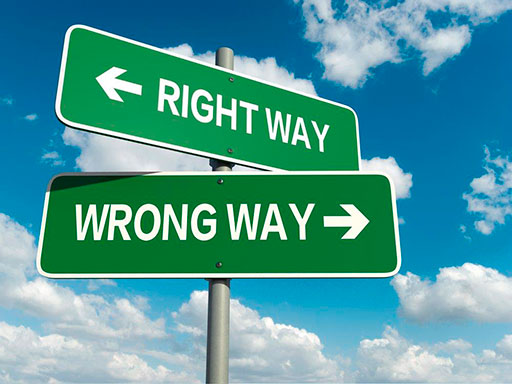3.1 Law or morality
Historically, the moral and religious values of a society influenced the development of law. Early philosophical writers believed in a higher law known as ‘natural law’, deriving from God. In principle, natural law principles should be reflected in man-made laws and if they are not then those laws should not be regarded as laws at all.
In the nineteenth century, writers such as Jeremy Bentham (1748–1832) and John Stuart Mill (1806–1873) rejected the concept of natural law, arguing for a rational man-made view of law. They asked the question: what is the use of law? And their answer was that its purpose was to work towards the greatest good for the greatest number of people and to minimise suffering. This became known as utilitarianism, but what does this theory mean in practice?
The following activity provides you with an opportunity to think about this.
Activity 3 The dilemma of utilitarianism
Imagine that you have been shipwrecked and have survived in a lifeboat with three others. You are in the middle of the ocean with a shortage of water and food. It is unlikely that you will all live; however, if there were only three people in the boat (Figure 6) then there might be a better chance of survival.
Think about the following questions:
- a.Would it be an immoral act to kill one person so that the others have a better chance of surviving? Consider what the utilitarian position would be.
- b.How should you decide who should die?
Comment
- a.A utilitarian would argue that it would be right for someone to die as it would save the lives of three people, rather than all four people in the boat dying; the good outweighs the harm. Others would argue that it is always morally wrong to kill another person.
- b.There are different options for deciding who should be killed.
You could draw lots as to who should be killed – this could be regarded as fair as it favours no one person over another. However, it does not discriminate between young and old, or strong and weak.
You may have decided that it would be preferable to kill the weakest person in the boat as they are less likely to survive anyway – a utilitarian is likely to approve of this option, as it would appear to offer the greatest good. However, this may be the youngest person who is the weakest now but could be the most economically productive later in life. So where does the greatest good lie here?
You could kill the oldest person in the boat on the grounds that they have already lived longer than the others. Again, this option might satisfy utilitarians as it may offer the greatest good, but it may seem morally reprehensible to many in society.
You may think that the scenario in Activity 3 is fanciful, but the utilitarian dilemma does arise in more realistic situations:
- The decision is to force a system of mass inoculation on the children in a population to ensure that a disease is eradicated and no more deaths occur. A utilitarian would consider that it was morally better to inoculate, even without consent of the children’s parents, to save more lives at little cost to the children themselves.
- The decision is to drop a bomb on a country which will kill thousands of people but will have the effect of bringing a war with that country to an end quicker, ultimately saving more lives. A utilitarian would consider that it was morally better to drop the bomb and save the extra lives.
Utilitarians believe that law should follow the greatest good. Under the utilitarian construct, individual freedom is important; people should be free to choose their own conduct so long as they do not harm others. Or, if they do, the harm should not outweigh the harm done by the restriction of people’s personal freedom.


